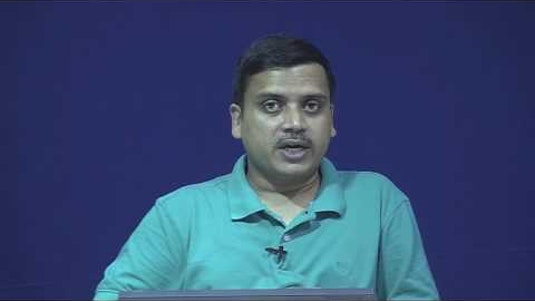Modern digital communication techniques free videos and free material uploaded by IIT Kharagpur Staff .
COURSE LAYOUT
Week 1: Introduction to digital communication systems
Week 2: Source Coding
Week 3: Characterization of Communication Signals & Systems
Week 4: Signal space Representation
Week 5: Representation of Memory less Modulation MethodsI
Week 6: Nonlinear modulation methods
Week 7: Optimal receivers of AWGN
Week 8: Receiver for non-ideal channel
Week 9: Probability of error of different modulation schemes
Week 10: Fundamentals of estimation and detection theory used in digital communication
Week 11: Carrier phase and symbol timing synchronization techniques
Week 12: Channel estimation and equalization techniques, Power Adaptation methods for colored noise channel
- The course Modern Digital Communication Techniques in taught in IIT Kharagpur as a 4 credit (4 hrs / week) core subject in the Masters program of Telecommunications systems engineering in the department of Electronics and Electrical Communication Engineering. It is taken in the first semester by master degree students, PhD students and Masters by research students. It is also taken as elective by final year UG students. It is also taken as a core subject by Dual degree students who specialize in the field of communication engineering.Digital communications has had one of the most profound influences in the development of the mankind. It is behind the success of today’s networked society. The objective of this course is to present the engineering principles, theories and practices, which are fundamental to the successful design of a digital communication system.
At the end of the course, the participant will be equipped with methods of systematic representation, analysis and design of a digital communication system which are essential in designing communication systems with complex and futuristic requirements.
INTENDED AUDIENCE :- Students belonging to Electrical sciences with specialization in communication engineering.
- Students on IT
- Instrumentation, etc. may also take this subject as per curriculum requirement.
- PRE-REQUISITES :
- Analog communications in UG level
- Digital communications in UG level
- Signals and systems in UG level
- INDUSTRY SUPPORT :
- All telecommunication equipment manufacturers and service providers
- Defense officials
- Research laboratories
- ISRO,
- BEL etc.

- 0 Reviews
- 5 Students
- 351 Courses

Write a public review